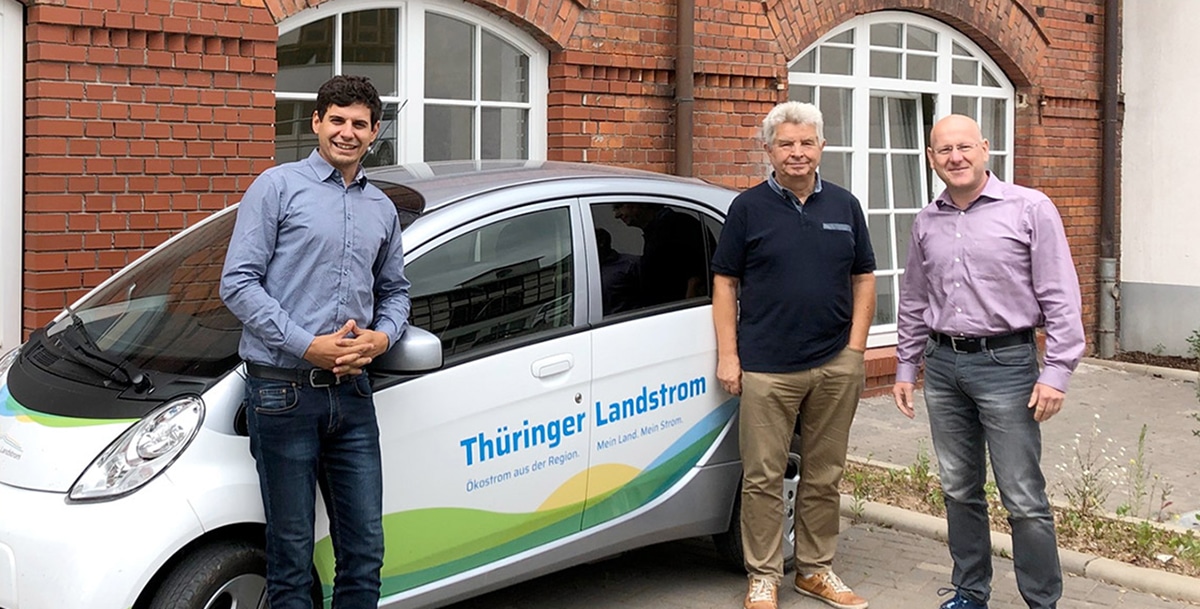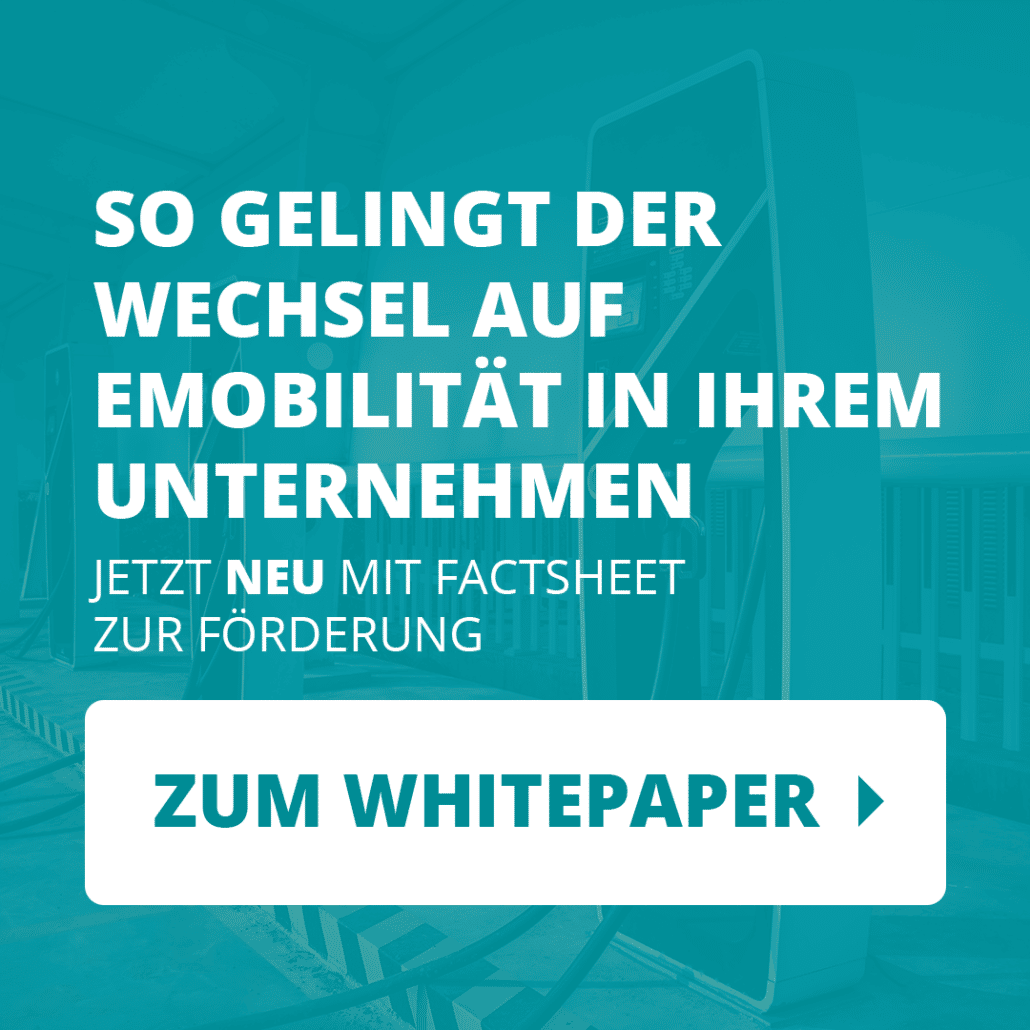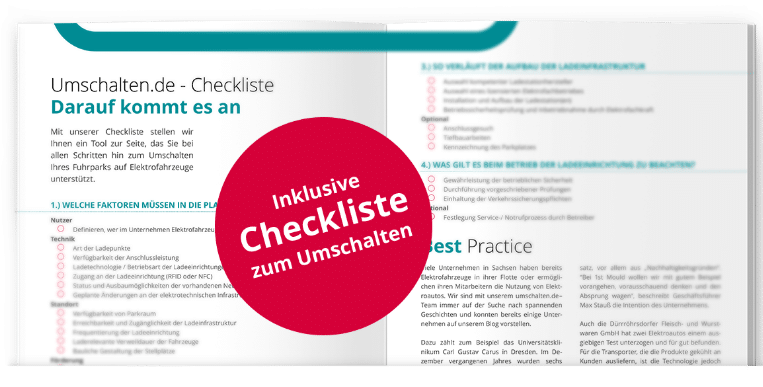A test electric car for the Diakonie Nordhausen - that was the order. Together with its cooperation partner InTraSol (Intelligent Traffic Solutions GmbH), SachsenEnergie AG implemented the project. umschalten.de talked to InTraSol and the Diakonie - about the motives, experiences gained and plans for the future.
Diakonie Nordhausen is a social service provider with 220 employees. Care for the elderly, the operation of day-care centres for children and addiction support centres as well as counselling work are part of the company's everyday life. Its activities are shaped above all by the mission statement of the Diakonie: "We are innovative from a living tradition". No wonder, then, that the company wanted to experience electric mobility for itself. "But the idea also arose out of our own curiosity," says Managing Director Michael Görk.
THE COMPETENT LOCAL COOPERATION PARTNER
The SachsenEnergie cooperation partner InTraSol was brought on board to implement the project. The company from Nordhausen has been accompanying companies and municipalities into the age of e-mobility since 2016. "This mobility revolution means completely new questions and challenges for entrepreneurs and municipal decision-makers regarding the vehicle fleet and the establishment of the necessary supply facilities. InTraSol provides manufacturer-independent advice on the optimisation of fleets and their management, as well as the development of an individual and needs-based charging infrastructure, all the way to turnkey business models," says InTraSol's Commercial Director Eric Benkenstein, describing the mission of his engineering firm.
Diakonie Nordhausen: NEIGHBORING ELECTRICITY
Diakonie Nordhausen has been interested in the topic of electromobility for some time. "We practically walked in with open doors," recalls Eric Benkenstein and reports how the cooperation began to take shape: "Together we then discussed ideas, made recommendations for action and initiated measures. Diakonie was always interested in holistic solutions. Mr Görk was very open to the idea from the very first conversation and was quickly able to inspire his sponsor, such as the Protestant Church of Central Germany and the Südharz church district, for this innovative mobility."
The use of electric vehicles is well suited for the daily tasks of the Diakonie Nordhausen: "The vehicles are used especially for courier trips and transporting residents. Because for city trips and short interurban journeys, they are just the right thing to be able to do diaconal work," Michael Görk tells us. Moreover, care services plan most of their tours in advance. Vehicles can thus be optimally coordinated.
Other advantages of electric cars are obvious for Diakonie Nordhausen: "Favourable consumption and less wear and tear in urban use speak for themselves," says Michael Görk.
CREATE INFRASTRUCTURE AND INSPIRE EMPLOYEES
On the infrastructure side, two tasks had to be realised at once. Firstly, the generation of electricity and a corresponding charging facility for electric cars. It was clear from the outset that the necessary electricity would only come from our own renewable energy sources. For this purpose, a photovoltaic system including storage was set up on a nursing home. On an area of about 400m², green electricity is generated for the nursing home and electric cars. In addition, InTraSol installed a wallbox at the company's location so that electric vehicles can be charged quickly.
The second component was to find employees who would switch to the test vehicle for their daily journeys. This was not so easy at first, recalls Eric Benkenstein: "When we then held a training session for them and other colleagues, the initial fears disappeared. The advantages of electric vehicles - quiet, sporty and simple - came to the fore.
"The impression of the first journeys was great and our employees who use the vehicles were mostly positive about them," says Michael Görk from the Diakonie, summarising the experience of the last few months.
FOUNDATION STONE FOR AN ELECTRIFIED FLEET
The first cooperation with SachsenEnergie and InTraSol is only the beginning. For Diakonie Nordhausen has set itself a number of goals. "We want to achieve a good mix of conventional and new drive technologies in our vehicle fleet," says Michael Görk, looking to the future. To achieve this, the charging infrastructure must of course be further expanded. Eric Benkenstein describes what this might look like: "Along with this, it is planned to equip further company locations with PV systems and charging stations and to purchase new electric vehicles after the leasing periods of the 'burners' expire."
If you are also curious about electromobility and want to know how to switch to e-vehicles in your fleet, we will be happy to support you. Simply write to us at !





